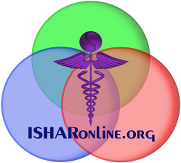Unknown to most Western psychologists, ancient Indian scriptures contain very rich, empirically derived psychological theories that are, however, intertwined with religious and philosophical content. This article represents our attempt to extract the psychological theory of cognition and consciousness from a prominent ancient Indian thought system: Samkhya-Yoga. We derive rather broad hypotheses from this approach that may complement and extend Western mainstream theorizing. These hypotheses address an ancient personality theory, the effects of practicing the applied part of Samkhya-Yoga on normal and extraordinary cognition, as well as different ways of perceiving reality. We summarize empirical evidence collected (mostly without reference to the Indian thought system) in diverse fields of research that allows for making judgments about the hypotheses, and suggest more specific hypotheses to be examined in future research. We conclude that the existing evidence for the (broad) hypotheses is substantial but that there are still considerable gaps in theory and research to be filled. Theories of cognition contained in the ancient Indian systems have the potential to modify and complement existing Western mainstream accounts of cognition. In particular, they might serve as a basis for arriving at more comprehensive theories for several research areas that, so far, lack strong theoretical grounding, such as meditation research or research on aspects of consciousness.
How Do Theories of Cognition and Consciousness in Ancient Indian Thought Systems Relate to Current Western Theorizing and Research?
Categories:
Language:
English
Abstract:
Item Type:
Journal Article
Publication Title:
Frontiers in Psychology
Journal Abbreviation:
Front Psychol
Publication Date:
2016
Publication Year:
2016
Pages:
343
Volume:
7
ISSN:
1664-1078
DOI:
10.3389/fpsyg.2016.00343
Library Catalog:
PubMed
Extra:
PMID: 27014150 PMCID: PMC4791389
Peter Sedlmeier and Kunchapudi Srinivas. 2016. "How Do Theories of Cognition and Consciousness in Ancient Indian Thought Systems Relate to Current Western Theorizing and Research?." Frontiers in Psychology 7: 343. 10.3389/fpsyg.2016.00343.
<ref> {{Cite journal
| doi = 10.3389/fpsyg.2016.00343
| issn = 1664-1078
| volume = 7
| pages = 343
| last = Sedlmeier
| first = Peter
| coauthors = Srinivas, Kunchapudi
| title = How Do Theories of Cognition and Consciousness in Ancient Indian Thought Systems Relate to Current Western Theorizing and Research?
| journal = Frontiers in Psychology
| date = 2016
| pmid =
| pmc =
}} </ref>
